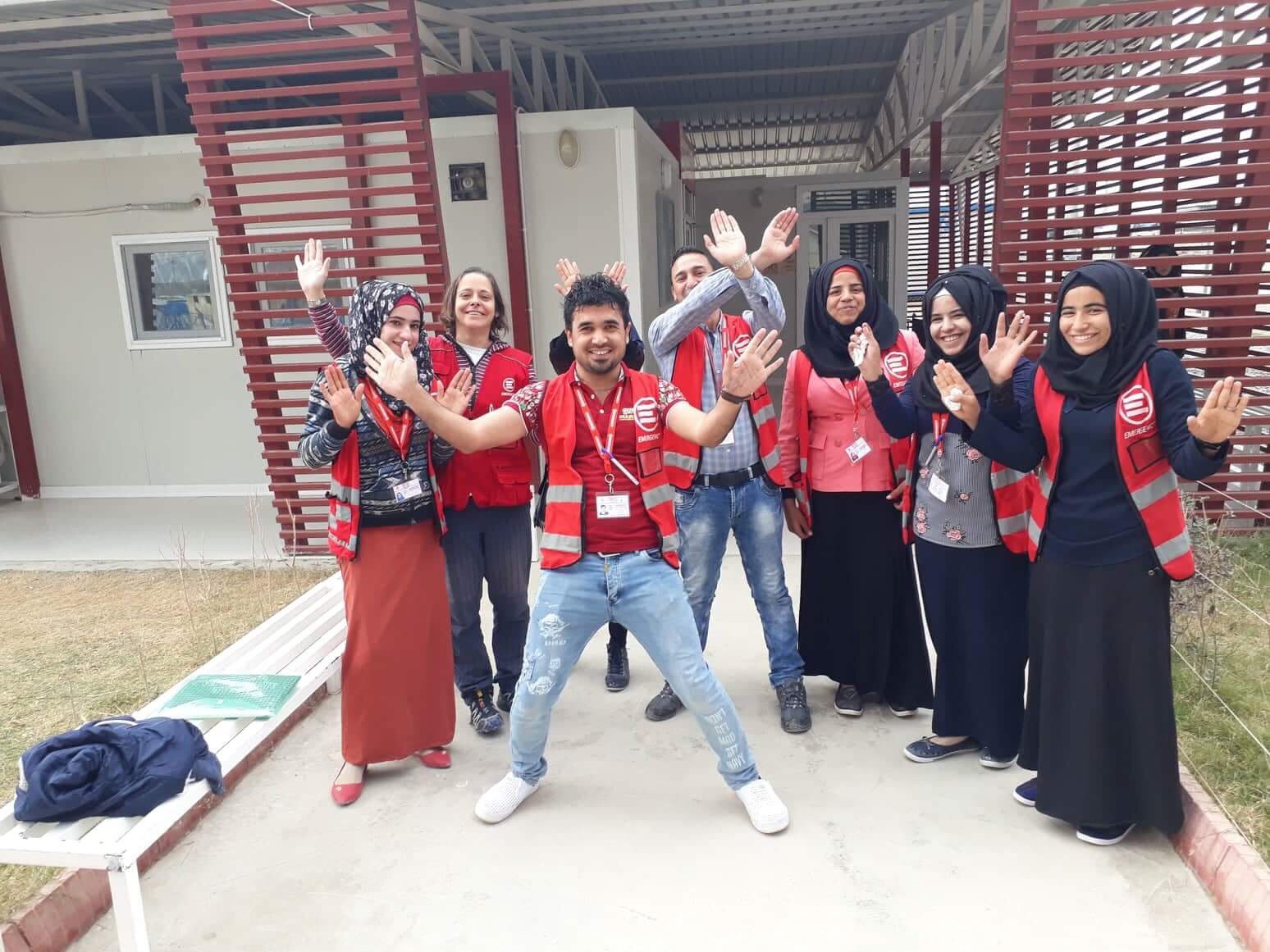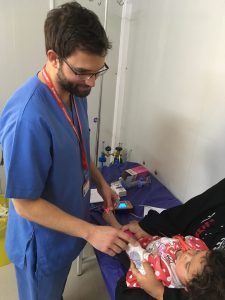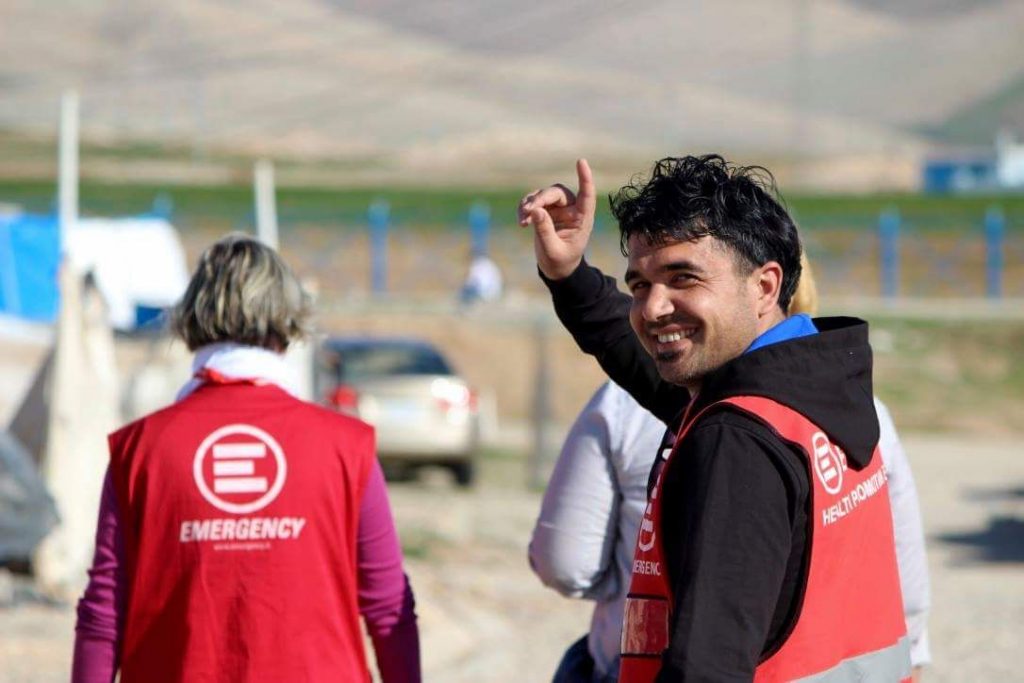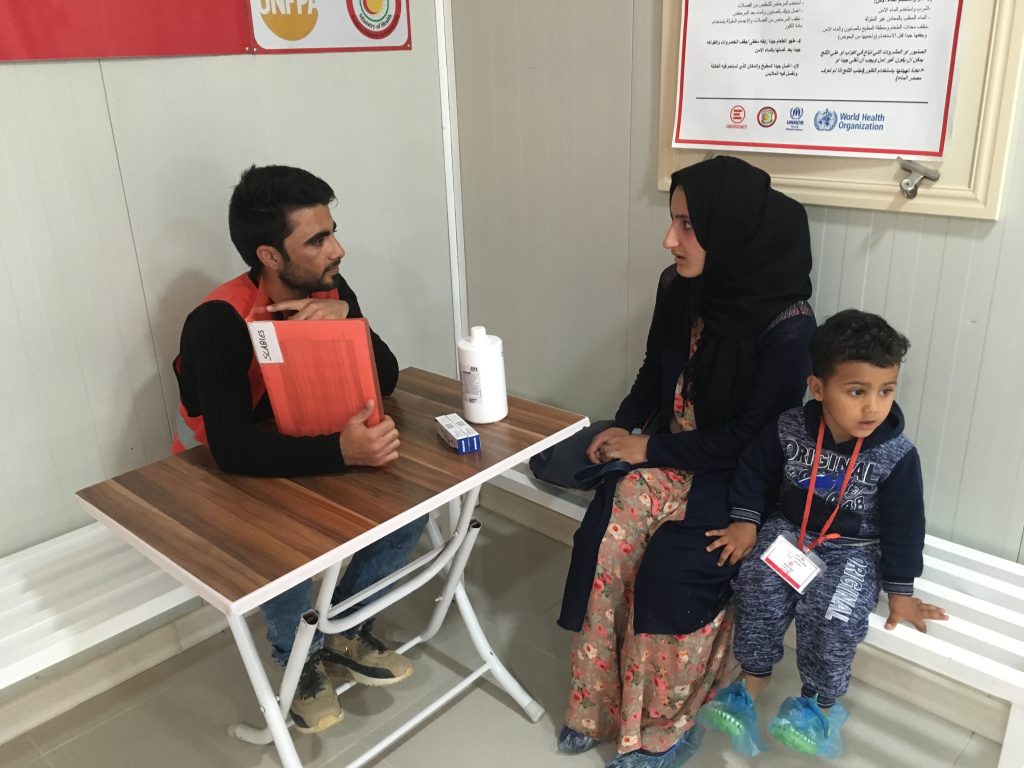It was 1991 and Jamila was nine years old. When a mine exploded, she suffered…

From London to Iraq: A Nurse’s Perspective – Part Three
This is the third instalment in Mark’s blog series. To see the previous entry, click here.
 Hi! My name’s Mark and I’m a British nurse who normally works in an Emergency Department in central London. I am currently on my first mission with EMERGENCY in Iraqi Kurdistan. I previously volunteered in Greece with the Syrian American Medical Society, providing medical care to refugees who had made the crossing from Turkey to Europe. I chose to work with EMERGENCY because of the high standard of their work, their ethos of providing free care to all, and because it gave me the opportunity to work with Syrian refugees and Iraqi IDPs in Iraqi Kurdistan, a community of people I have come to know well through my previous missions. I hope that the following blogs and photos that will be posted on the EMERGENCY UK website can bring you closer to the work that we do every single day.
Hi! My name’s Mark and I’m a British nurse who normally works in an Emergency Department in central London. I am currently on my first mission with EMERGENCY in Iraqi Kurdistan. I previously volunteered in Greece with the Syrian American Medical Society, providing medical care to refugees who had made the crossing from Turkey to Europe. I chose to work with EMERGENCY because of the high standard of their work, their ethos of providing free care to all, and because it gave me the opportunity to work with Syrian refugees and Iraqi IDPs in Iraqi Kurdistan, a community of people I have come to know well through my previous missions. I hope that the following blogs and photos that will be posted on the EMERGENCY UK website can bring you closer to the work that we do every single day.
An integral part of EMERGENCY’s work in Iraq is the recruitment and training of camp residents as Health Promoters. They fulfil a number of different roles in the camp and clinic, and are a vital part of EMERGENCY’s work in the camp. With high levels of poverty among the camp population, combined with low levels of formal education, promoting healthy behaviours and raising people’s level of understanding about common health conditions is a necessity. In addition, the challenges of life in a densely populated camp necessitate training and education on conditions which were not a problem for people in their normal village, town or city environments.
For this entry, I interviewed a number of Health Promoters so that they could describe their work in their own words.
Farhan:
 Farhan is a young man from the Shingal region of Iraq. He has worked with EMERGENCY for 2 years.
Farhan is a young man from the Shingal region of Iraq. He has worked with EMERGENCY for 2 years.
“Health Promoters undertake many activities both inside the clinic and outside in the camp; health promotion, education about special infectious diseases, how to avoid infection and contagion. We provide education on breastfeeding, personal hygiene, chronic diseases, healthy lifestyles and prevention of diseases.
Health Promoters also take part in training volunteers who work in our clinic, who explain the clinic’s services for patients, and support our campaigns. We show patients how to use medications; how to use treatments for common dermatological conditions likes scabies, vitiligo and skin rashes. We educate patients on how to avoid and prevent contagious diseases like cholera, and how to cope with fevers, flu and the common cold. We educate people about parasites like leishmaniosis, called the ‘Baghdad Boil’ in Iraq. We visit tents to speak to people and educate them. We also work as translators between patients and the international staff.”
Farhan and the other Health Promoters have organised drama productions about dental health in schools in the camp to explain the disease for students. In his spare time, Farhan writes poetry and has staged plays in Sulaymaniyah about their experiences when ISIS came to the Shingal region, he draws on these skills when performing the health promotion plays in the camp schools.
Every week the Health Promoters do statistics on the number of meetings, the number of patients, their gender and whether they were spoken to inside or outside the clinic. They speak to around 1000 patients a week across both clinics.
Khalid:

Khalid is another young man from Shingal who lives in the camp and works for EMERGENCY:
“I was employed here in May 2016 so I have been for EMERGENCY for a while now. We have two clinics; a paediatric clinic and a clinic for adults. I work in both clinics according to the daily roster.
Our main job is promoting health for the people who are living in the camp, giving sessions in the clinic on many different topics. Also we do campaigns every while where we go all around of the camp knocking door by door and giving them health promotion sessions in their tents.
Alongside promoting health among the people we have other extra jobs like organizing people in the clinic and giving them instructions on how to use its services better.
We also go out for home visits and check over the patients and make sure they’re coming for the follow up appointments which they were given before.
I’m very happy to work with EMERGENCY and I prefer to call it the EMERGENCY family. All of us who work for EMERGENCY have become friends, and each one of us is from a different spot on this planet. Despite all the tiredness and work and, it can’t be compared with a smile from an innocent child that I contributed to.”
Being from the same communities as the patients we treat allows the health promoters to relate to patients in a way that international staff simply can’t. They face the same daily challenges, and have the same experiences of displacement and loss. Their commitment to their work and to improving the situation for the camp residents is incredibly admirable and inspiring. The health promoters are an invaluable part of the team working for EMERGENCY, and we are very lucky to have such dedicated and caring people working on the project. That’s all for now, but I’ll be back with more interviews with local staff next time.




